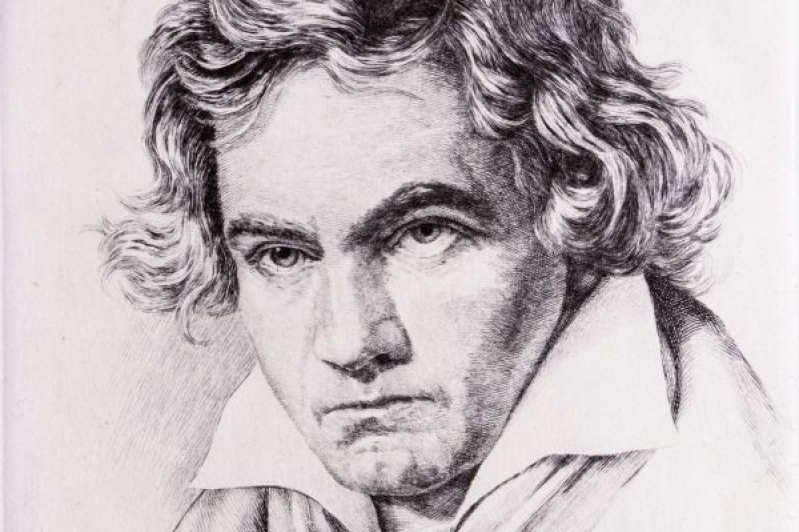Many believe that a ‘curse’ has become attached to writing a ninth symphony, believing that it would be a composer’s last, and death would come during writing the piece or soon afterwards.

Ludwig van Beethoven, Symphony No 9 Choral (1824)
Exactly 200 years ago in Vienna, Beethoven’s final symphony was first performed and became a benchmark musical work. It’s hard to overstate the significance the Beethoven’s Ninth symphony had on the musical world.
Its importance was sealed when the Ninth became Beethoven’s final symphony, first performed in 1824 Vienna. Beethoven was approaching the end of his career and was almost completely deaf. Three instrumental movements build on the foundations of his previous symphonic works, a militaristic Allegro, devilishly difficult Scherzo, and a charming Adagio.
In the Finale of the last movement, Beethoven did something revolutionary and incorporated solo singers and a large choir. The Ode to Joy tune, now the anthem of the European Union, written to Friedrich Schiller’s poem An die Freude (To Joy). It’s a staple piece of the BBC Proms festival, was famously conducted by Leonard Bernstein three days after the fall of the Berlin Wall in 1989
Beethoven died a few years later in 1827.
Franz Schubert, Symphony No 9 The Great (1825)
Hot on the heels of Beethoven’s monumental 1824 premiere, Franz Schubert completed his ninth and final symphony the following year.
An hour long, the symphony is indeed ‘great’ in length (especially for the standards of its time) and made use of three trombones. Schubert’s contemporaries were stunned by the difficulty and complexity of the work.
The symphony's length and difficulty meant that it was rejected by Viennese concert promoters, meaning that when Schubert died from illness aged only 31 in 1828, he had never heard his final symphonic piece performed. It was only after fellow composer Robert Schumann rescued the score was a performance of the work first held, conducted under the baton of Felix Mendelssohn in Leipzig in 1839.
The symphony was posthumously nicknamed The Great primarily to distinguish it from his Little Great Sixth Symphony, but soon became revered as living up to its namesake.
Antonín Dvořák, Symphony No 9 From the New World (1893)
Aged 50 in 1892, the established Czech composer Antonín Dvořák moved to New York City in America to become director of National Conservatory of Music. During his brief time in America, the composer was inspired by the African American spirituals and songs of the American south to write his last symphony, fondly known by its subtitle, the New World Symphony. Probably the symphony’s most recognisable moment is in the second movement, when the cor anglais begins the spiritual-like theme.
Dvořák’s Ninth symphony is a firm favourite of the concert hall.
Anton Bruckner, Symphony No 9 (1896)
Bruckner intended for his Ninth Symphony to be the summation of his whole life achievements and included musical quotations from some of his most successful works.
Unfortunately, Bruckner died while composing the symphony’s last movement.
The deeply religious Bruckner dedicated his work ‘to the beloved God’, and the symphony was first performed in Vienna in 1903.
Gustav Mahler, Symphony No 9 (1909)
Mahler’s Ninth was written between 1908 and 1909 and was his last completed symphony. At almost one and a half hours long it was a major work for a large orchestra. Its premiere took place in Vienna in 1912, but sadly Mahler did not live to hear it. After a difficult time in Vienna and experiencing constant antisemitic criticism, Mahler was diagnosed with a weak heart. He died in 1911.
Experience Schubert’s Ninth Symphony this November with WNO Conductor Laureate, Carlo Rizzi, one of the brightest young tenors, Nicky Spence, and the internationally acclaimed WNO Orchestra at Royal Welsh College of Music and Drama on 9 and 10 November.



